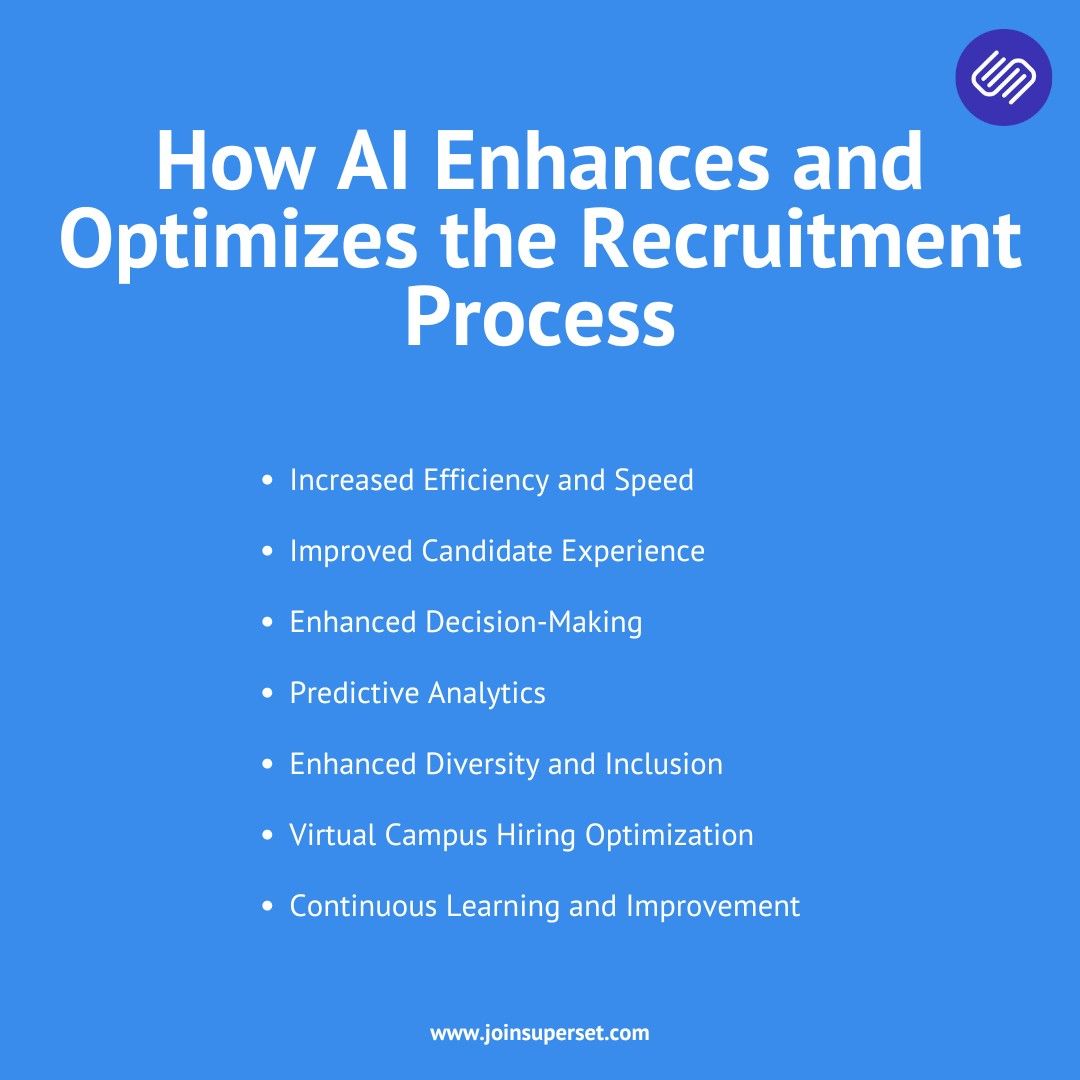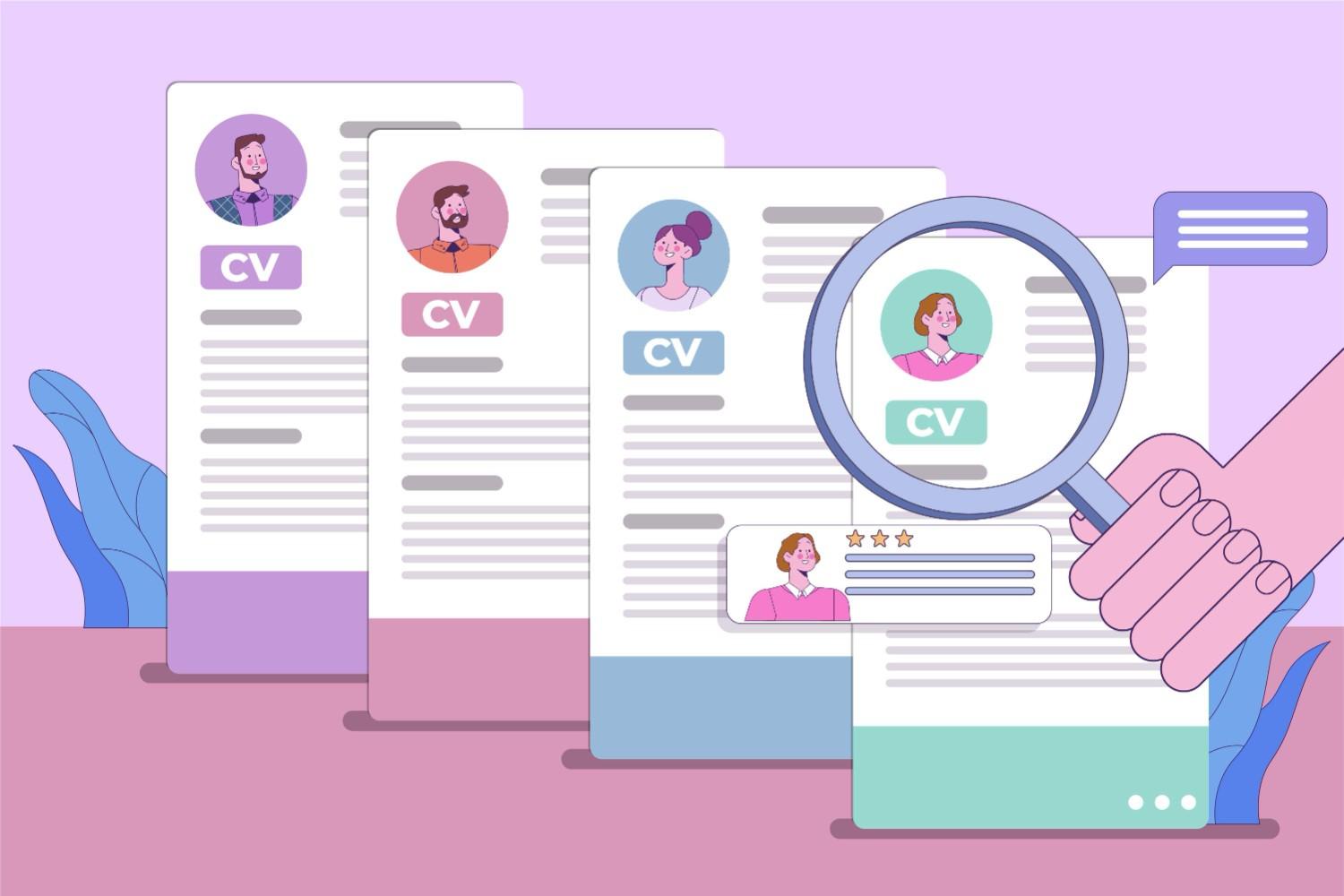In today’s tech-driven world, virtual hiring has become an essential aspect of the recruitment process for many companies. As organizations continue to embrace remote work and seek top talent from a global pool, the integration of Artificial Intelligence (AI) in virtual hiring tools has revolutionized how companies attract, assess, and onboard candidates. This blog explores the evolution of virtual hiring tools, the adaptation of AI features, and the detailed benefits AI brings to the recruitment process.
How Were Virtual Hiring Tools Before the Integration of AI
Before the integration of AI, virtual campus hiring tools primarily served as digital platforms that facilitated remote recruitment processes. These tools included video conferencing software, online job boards, and applicant tracking systems (ATS). While they provided a means to conduct interviews and manage candidate information, they were limited in their capabilities and often lacked the sophistication needed to streamline the entire recruitment process effectively.
- Manual Screening and Selection
In the early stages of virtual hiring, recruiters had to manually shift through resumes, cover letters, and other application materials. This process was time-consuming and prone to human error, often leading to qualified candidates being overlooked. Additionally, the sheer volume of applications for a single position could overwhelm hiring managers, resulting in delays and inefficiencies. - Basic Video Interviewing
Video interviewing platforms were among the first tools used in virtual hiring. While they allowed for face-to-face interactions without geographical constraints, they were rudimentary in nature. These platforms offered limited features, such as basic scheduling and recording capabilities, but lacked advanced functionalities like real-time feedback, interview analytics, and candidate assessment. - Inefficient Data Management
Managing candidate data was another significant challenge. Without AI, applicant tracking systems were primarily used for storing and organizing resumes. However, these systems often lacked robust search and filtering capabilities, making it difficult for recruiters to identify the best candidates quickly. The absence of predictive analytics meant that hiring decisions relied heavily on subjective judgment rather than data-driven insights.
How Virtual Hiring Tools Adapted AI as a Feature
The advent of AI technology brought about a transformative shift in virtual hiring tools. By incorporating AI features, these tools have become more intelligent, efficient, and effective in managing the recruitment process.
- AI-Powered Resume Screening
One of the most significant advancements in virtual hiring is the use of AI for resume screening. AI algorithms can analyze resumes and application materials with incredible speed and accuracy. By identifying keywords, qualifications, and relevant experience, AI can shortlist the most suitable candidates, drastically reducing the time recruiters spend on initial screenings. - Intelligent Video Interviewing
AI has also enhanced video interviewing platforms. Modern virtual hiring solutions now include features such as facial recognition, emotion analysis, and voice recognition. These capabilities allow recruiters to assess candidates’ non-verbal cues and communication skills more effectively. Additionally, AI can provide real-time feedback and generate interview transcripts, making it easier for hiring managers to evaluate and compare candidates. - Advanced-Data Management and Analytics
AI-driven applicant tracking systems have revolutionized data management. These systems can automatically categorize and organize candidate information, making it easier for recruiters to search and filter through applications. Predictive analytics tools can analyze past hiring data to forecast future hiring needs and identify trends, helping companies make more informed recruitment decisions. - Virtual Campus Drives and AI
Virtual campus drives have also benefited from AI integration. These drives, which aim to recruit fresh talent from universities and colleges, now leverage AI to match candidates with suitable roles based on their academic background, skills, and preferences. AI-driven platforms can handle large volumes of applications, ensuring that no potential candidate is overlooked.
How AI Enhances and Optimizes the Recruitment Process in Detail
The integration of AI in virtual hiring tools has brought numerous enhancements and optimizations to the recruitment process. Here, we delve into the specific ways AI is transforming virtual hiring:

1. Increased Efficiency and Speed
AI significantly speeds up the recruitment process by automating time-consuming tasks. Resume screening, candidate matching, and interview scheduling can now be done in a fraction of the time it would take manually. This increased efficiency allows recruiters to focus on higher-value tasks, such as engaging with top candidates and making strategic hiring decisions.
2. Improved Candidate Experience
AI enhances the candidate experience by providing timely and personalized communication. Chatbots, powered by AI, can answer candidates’ questions, provide status updates, and guide them through the application process. This level of engagement ensures that candidates feel valued and informed, which can improve their overall perception of the company.
3. Enhanced Decision-Making
AI provides data-driven insights that enhance decision-making in the recruitment process. By analyzing candidate data, AI can identify patterns and trends that may not be immediately apparent to human recruiters. This allows companies to make more informed decisions about which candidates are the best fit for their organization. Additionally, AI can help eliminate unconscious bias by focusing on objective criteria rather than subjective judgments.
4. Predictive Analytics
Predictive analytics is one of the most powerful features of AI in virtual hiring. By analyzing historical hiring data, AI can predict which candidates are most likely to succeed in a given role. This helps companies make more accurate hiring decisions and reduce turnover rates. Predictive analytics can also forecast future hiring needs, allowing companies to plan their recruitment strategies proactively.
5. Enhanced Diversity and Inclusion
AI can play a crucial role in promoting diversity and inclusion in the workplace. By removing biases from the screening process, AI ensures that candidates are evaluated based on their qualifications and skills rather than demographic factors. This leads to a more diverse pool of candidates and helps companies build inclusive teams.
6. Virtual Campus Hiring Optimization
Virtual campus hiring has become more effective with AI integration. AI-driven platforms can assess candidates’ academic performance, extracurricular activities, and other relevant factors to match them with suitable job opportunities. This ensures that companies identify the best talent from universities and colleges, enhancing the overall quality of their hires.
7. Continuous Learning and Improvement
AI systems continuously learn and improve over time. As they process more data, they become more accurate and effective in their assessments. This means that virtual hiring tools powered by AI will only get better at identifying and selecting top talent, providing companies with a competitive edge in the recruitment market.
8. Cost Reduction
By automating various aspects of the recruitment process, AI can help companies reduce their hiring costs. The time saved on manual tasks translates to lower labour costs, and the improved accuracy of AI-driven assessments can reduce the costs associated with bad hires. Additionally, AI can optimize advertising spend by targeting the most relevant candidates for job openings.
Conclusion
The integration of AI in virtual hiring tools has revolutionized the recruitment process for companies. From increasing efficiency and speed to enhancing decision-making and promoting diversity, AI offers numerous benefits that optimize virtual hiring. As companies continue to embrace remote work and seek top talent globally, the role of AI in virtual hiring will only become more significant. AI-powered virtual hiring solutions, such as intelligent resume screening, advanced video interviewing, and predictive analytics, provide companies with the tools they need to attract, assess, and onboard the best candidates effectively. By leveraging these technologies, organizations can stay ahead in the competitive talent market and build high-performing teams that drive business success. As AI continues to evolve, its impact on virtual hiring will grow, offering even more sophisticated and optimized solutions for companies worldwide. Embracing AI in virtual hiring is not just an option but a necessity for companies looking to thrive in the digital age.








